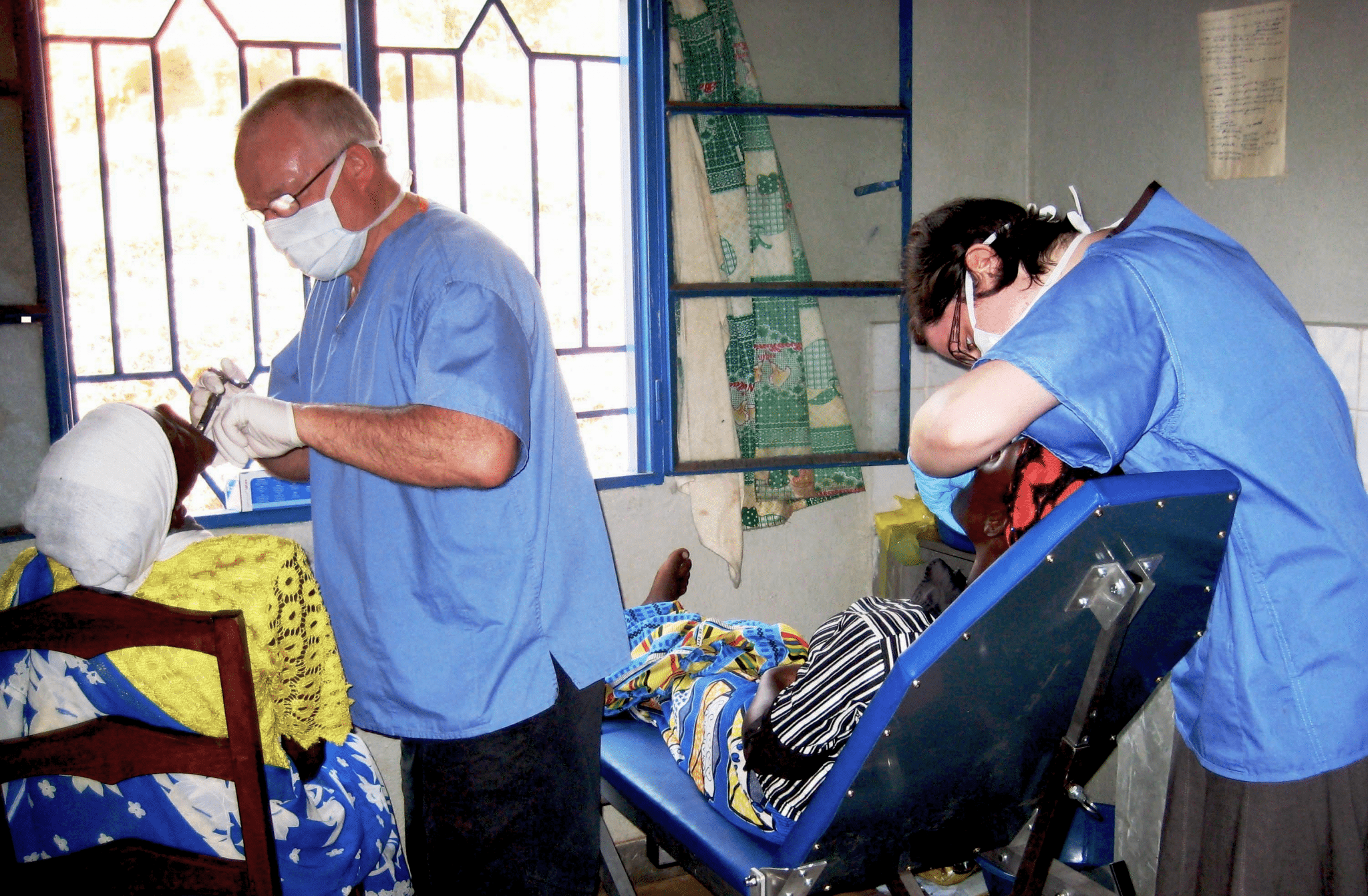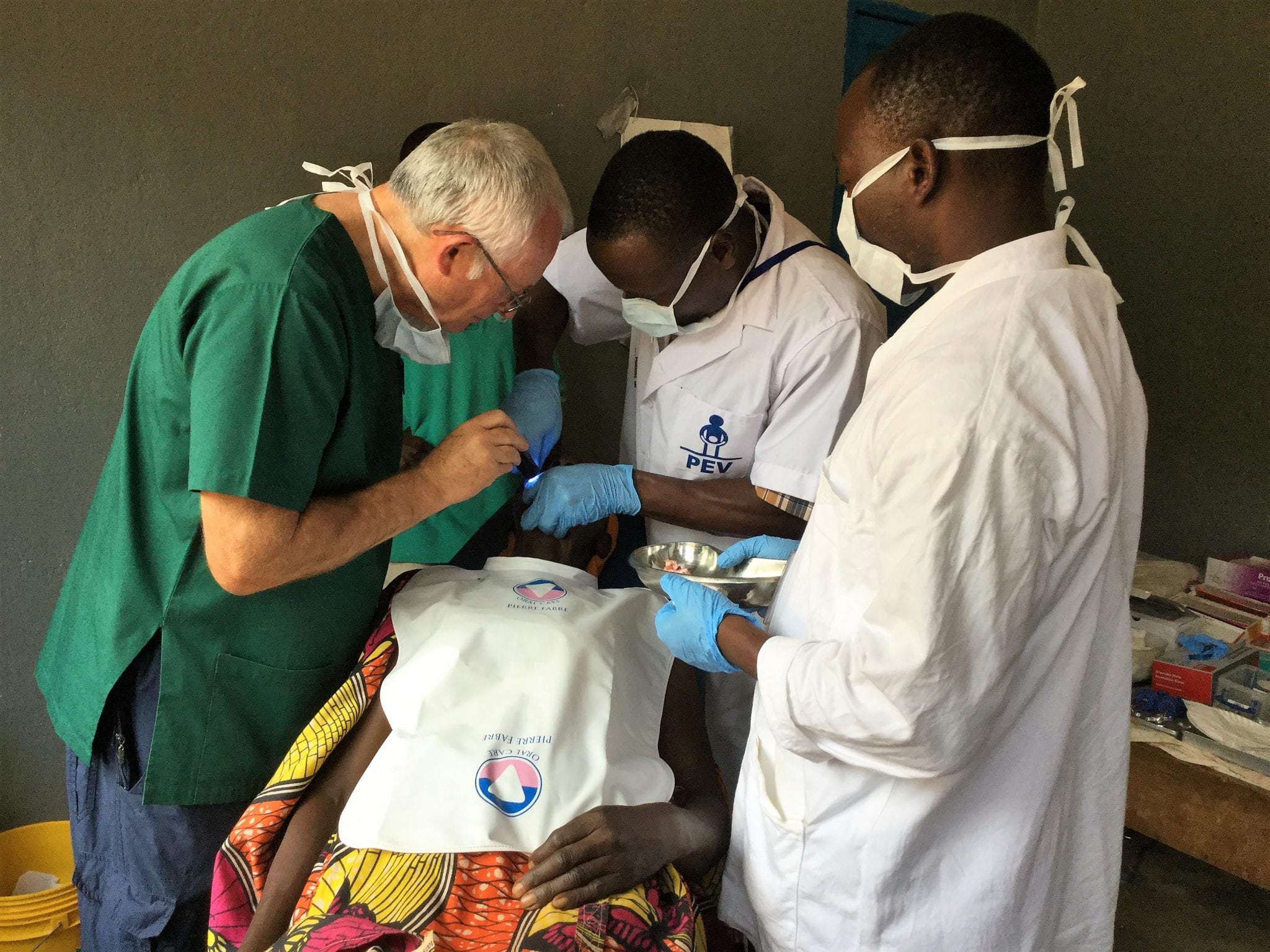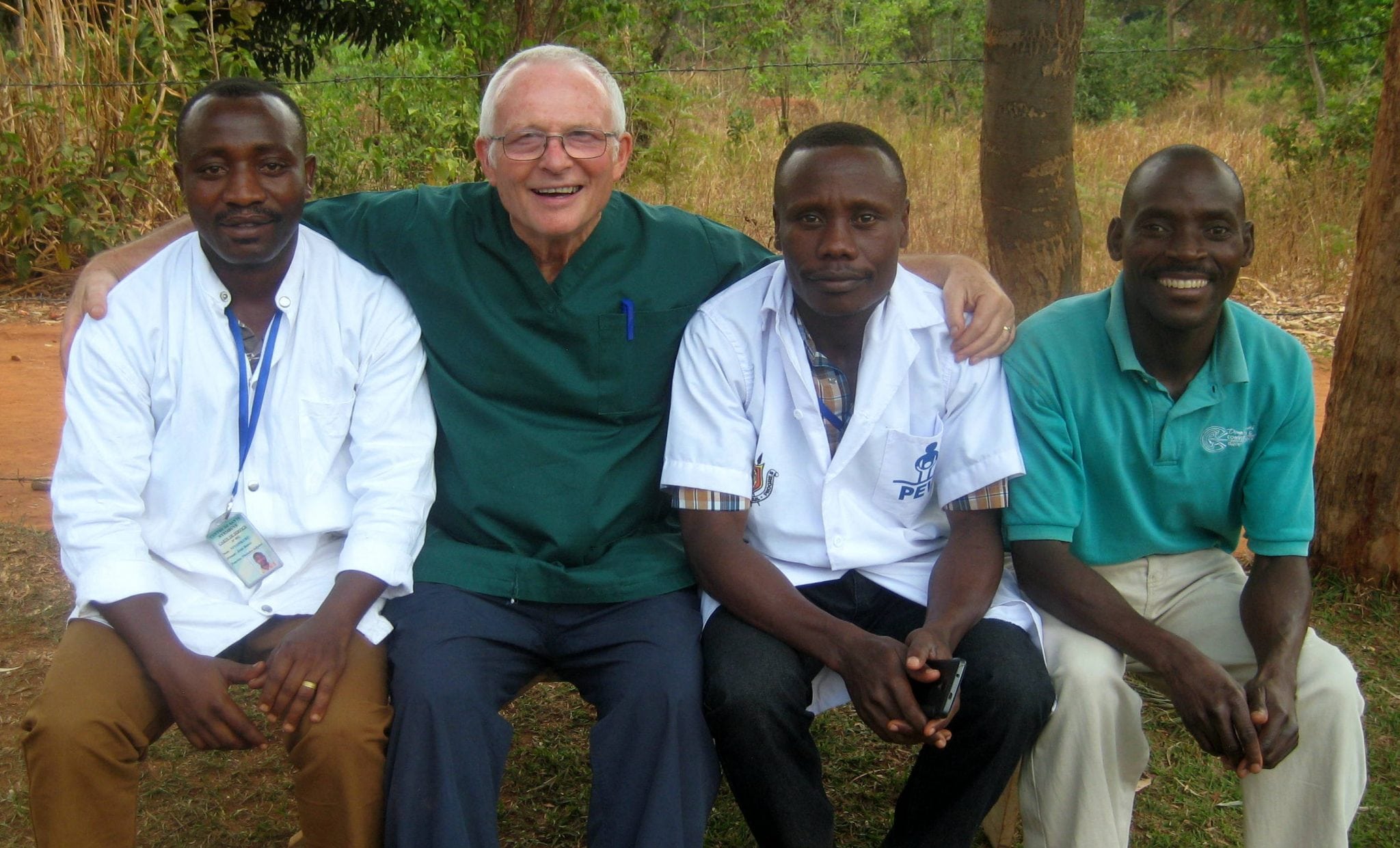Filling the gaps in dental care in Burundi
Dundee alumni and students are bringing vital services to people in Burundi, where what we consider straightforward procedures present new challenges
In the heart of Africa, when an abscess forms around a rotten tooth, infecting the gum and bone tissue, it can quickly become a life-threatening complication.
While treating an abscess can be a simple procedure in countries like the UK, in the province of Rutana, South-West Burundi, a swelling jaw can be an issue of life and death when the nearest dentist is over 200km away. There are only 16 doctors for the 400,000 people in the region and the closest health clinic does not extract teeth.
This was the stark situation facing Dundee dentist Dr Chris Southwick when he began traveling to Burundi, a country devastated by years of ethnic conflict.

For the past five years, Chris has been extracting teeth in the rural clinics of Burundi. During his time he has been training local nurse practitioners as well as guiding young Dundee dental and medical students how to deliver oral health amongst the terraced hillsides in a country the size of Wales.
“You are dealing with people who have nothing,” said Chris. “When my son, John, first told me there were only 13 qualified dentists for the 10 million people in the country, I couldn’t believe him, but our exploratory trip to assess how the Scottish Christian community could help confirmed it.
“I joined up with a team from Mission International and for the next five years I helped organise the instruments, materials and appropriate medicines to care for up to 400 people per trip.”

I am
Chris Southwick, Dentistry, Class of 1975
Dr Chris Southwick has been delivering oral health to communities all over the world for more than 30 years.
His career has taken him from Dundee Dental Hospital, to the remote and sparsely populated island of Tristan Da Cunha, to the heart of Africa.
He has been instrumental in the training of both local practitioners and Dundee-based students.
Since 2011, Chris and his team of keen students have spent two to three weeks of their summers in the Nyembuye Clinic in Rutana, dealing with 35-40 patients each day. Some of the patients, including pregnant women, have to walk over 15 kilometres to receive treatment.
“We were determined to provide acute dental care to maximise our effectiveness but this also limited our ability to perform all the extractions needed,” said Chris. “We had plenty of practical problems to cope with. Working at an altitude of 3500 feet, in a remote location, we had to sterilise our instruments in a pressure cooker.”
Chris began to train the male nurse practitioners at the clinic in safe and effective oral health. He has also helped train and support a young doctor in dentistry. The situation in the country means there is a need to blur the boundaries between the jobs.
“The vast majority of treatments are very simple but are crucially life-saving,” said Chris. “Each year I have been helped by students who have, through their actions, helped transform the lives of those living in Rutana province. It has become a vital service for patients and a great experience for all those who have gone.”

Over the years Chris has been traveling to Burundi he has seen some positive signs of change, although with much still needing to progress.
“There are signs of improvement but it is slow,” he said. “This is a country the size of Wales but many of the people aren’t able to get the healthcare we take for granted.”
Chris intends to return to Burundi this summer to carry out more of this vital work. He would like to thank Rema Ministries, for all their local organising and running of the clinic in Burundi.
